How China is using criminal detention in place of re-education through labour
Re-education through labour is a thing of the past it seems, criminal detention now takes its place
Monday, 21 April, 2014,
Verna Yu
Keen to learn about the United Nations' review of human rights in China, Cao Shunli planned to travel to Geneva last September. She never made her flight. Beijing police barred her from boarding her plane on September 14. Then the human rights activist disappeared.
Her family had no idea where she was until nearly a month later, when they received word from the police saying that Cao was accused of illegal assembly and had been placed in criminal detention. Police charged her on October 21 with "picking quarrels and provoking trouble".
Her troubles stemmed from her participation in a two-month sit-in outside the foreign ministry to press the government to let petitioners contribute towards its human rights report to the UN, as well as her decision to submit her own report to the UN. Her report documented activists who spoke out against judicial problems and corruption, who often found themselves subjected to torture and arbitrary detention.
Throughout her six months in custody, authorities repeatedly denied Cao visits from family and treatment for health problems including tuberculosis and liver disease, said her lawyer, Wang Yu. On February 20 she was rushed to hospital in a coma. Authorities granted her bail a week later, but she was too ill to leave. She died at the hospital on March 14.
Cao's plight is hardly isolated.
After the authorities last year stopped the notorious practice of sending people to re-education-through-labour camps, legal experts and rights lawyers noticed a rise in the number of activists placed in criminal detention.
In recent months, rights groups have chronicled dozens of cases in which police have detained activists on public disorder charges such as illegal assembly, "picking quarrels and provoking trouble" and "gathering a crowd to disturb public order". Lawyers say the accusations are often vague and target conduct that is not actually criminal.
Statistics are impossible to obtain, due to the lack of transparency in the legal system and the difficulty in differentiating between politically motivated and non-political public order charges. But activists and petitioners also say they are experiencing more criminal detentions than before since the abolition of re-education through labour.
Criminal detention "is ostensibly a legal measure, but in fact it's exploiting people's sense of fear... so they can be more easily controlled by the authorities", said Wang, Cao's former lawyer.
Mainland law restricts criminal detention periods to 30 days, an apparent improvement over re-education-through-labour sentences, which typically lasted at least a year. Yet legal experts cautioned that criminal detentions could lead to prosecutions and years-long imprisonment.
"Criminal detention is only the beginning of a criminal process that can lead to a death sentence," said China law expert Professor Jerome Cohen at New York University.
Lawyers have also noticed an increased use of other forms of detention by the authorities. Administrative detention, in which suspects can be held for up to 15 days, is often employed to detain rights defenders. Many petitioners who have tried to lobby the government have been held in so-called black jails. Authorities have also arbitrarily jailed Falun Gong practitioners, underground church participants, and religious cult members in so-called legal education centres that serve as de facto detention centres, lawyers say. Others perceived as troublemakers have been sent to mental hospitals. Torture and other abuses are widely used.
The authorities still have lots of measures ... to crack down on rights defenders
Four lawyers who tried to investigate the illegal detention of followers of the banned Falun Gong movement last month were placed in administrative detention for between five and 15 days, during which time they say they were tortured.
The notorious re-education through labour system started in the 1950s as a way to lock up dissenters and petty criminals. Its abolition last year was supposed to be a step forward in the protection of human rights. But the administrative punishment has been replaced by other forms of detention, legal experts say.
Nicholas Bequelin, senior researcher at Human Rights Watch, believes that recent cases reflect the government's priority to maintain a tight leash on rights activities, including petitioning and campaigning against corruption, as well as unsanctioned religious activities.
"While the police cannot send people to re-education through labour on a whim, as they used to, the Communist Party still demands that they enforce these prohibitions," he said. "As a result the police must find expedient ways to deal with these dissenters, hence the use of short-term criminal detention. This is worrying because it violates the spirit of the criminal procedure law for political ends."
Under mainland law, police can hold individuals for up to 30 days in criminal detention before deciding whether to pass the case to prosecutors. Prisoners can be held for another seven days while waiting for a formal arrest.
Legal experts say police have the power to arbitrarily detain perceived troublemakers in the absence of a court ruling or prosecutors' approval, and rarely face consequences for improper detentions. Even if police do not expect a case to merit prosecution, they still use criminal detention to exert control over perceived trouble makers, lawyers say. Even when freed, former detainees are subject to restrictions including confinement to their hometowns and check-ins with local police.
Recent examples abound.
Two close friends of Cao's, activists Liu Xiaofang and Li Yingzhi, were placed in criminal detention in March, shortly before Cao died. Li was accused of "picking quarrels and provoking trouble" when he tried to visit Cao in the hospital.
Legal scholar Xu Zhiyong and other activists in his New Citizens Movement have agitated for officials to disclose their assets. When they were tried in court in January, several supporters were placed in criminal detention.
Some people are even detained again immediately upon their release.
Yu Yanhua was one of several members of a Beijing house church who rallied to support New Citizens Movement activists before their trials. When the congregants tried to have a fellowship meeting that week, 13 were placed under a month's criminal detention for illegal assembly and demonstration.
When Yu was released a month later, she was taken to her hometown in Jiangsu province and given another 10 days of administrative detention for "illegal petitioning". After that, she was taken to a local hostel and detained for another eight days, until the end of the National People's Congress.
"But I haven't done anything illegal. How come they can just lock you up when they like?" Yu said in an interview.
In some cases, criminal detention is only the beginning of a longer ordeal of prosecution and imprisonment for critics of the government.
Cohen of New York University said that if prosecutors approved charges after 37 days of criminal detention, police would sometimes detain someone for another six months or longer. During that time an indictment can be issued, leading to trial and formal sentencing.
I haven't done anything illegal. How come they can just lock you up when they like
Cohen offered the example of Xu, who was convicted in January of "gathering a crowd to disrupt order in a public place". He received a four-year sentence.
Last Friday, a Beijing court sentenced four other activists from Xu's movement to jail terms from two to three-and-a-half years for disturbing public order.
China has long been criticised by the international community for locking up dissenters on political charges such as subverting state power, Cohen said. But now that activists are being convicted on non-political public order charges, he said defence lawyers' tasks had become nearly impossible thanks to the vagueness of the alleged crime, the breadth of what constitutes public disorder, and the lack of transparency in the legal process.
"They are increasingly resorting to charges that are so vague it's hard to tell the legitimacy of prosecution," Cohen said. "These are vague phrases that the government can pour any meaning into … But of course they're using criminal offences to punish political conduct."
Teng Biao, visiting law scholar at the Chinese University of Hong Kong, said police had no shortage of tools to silence government critics, even after the abolition of re-education through labour.
"So long as the legal and political systems remain unchanged, the authorities still have lots of measures to resort to in order to crack down on rights defenders," Teng said.
Apart from extra-judicial detention centres known as black jails, legal education centres and mental hospitals, authorities still resort to harassment, threats, job dismissals and intimidation of relatives, he said.
Teng, stripped of his mainland lawyer's licence because of his activism, had first-hand experience of being illegally detained. He was hooded and held for days by police after speaking out against rights abuses before the 2008 Beijing Olympics. In 2011, he was detained for 70 days at unknown locations. For most of that time he was handcuffed and forced to sit in fixed positions for long periods under strict surveillance.
Unless the central government permits a wide-range of conduct that does not constitute a genuine threat to law and order, “whatever advances that were made in theory with the abolition of re-education through labour are at the risk of being rolled back in practice by an increase of politicised prosecutions,” said Bequelin of Human Rights Watch.
Meanwhile, Renee Xia of Chinese Human Rights Defenders said Cao's death had made her fear for the safety of detainees in police-run detention centres.
“The detention centres remain highly abusive... there have been many cases of torture and deaths in detention,” Xia says.
Cao's brother, seeing his sister's body soon after she died, said her frame appeared bruised and swollen, Wang the lawyer said. The foreign ministry has denied she died from a lack of medical care.
Liu Weiguo, another of Cao's former lawyers, said he feared more tragedies if the state didn't curb the exclusive power of police to investigate crime and arbitrarily detain people.
"If there is no change to the system, Cao's tragedy will definitely happen again," he said.
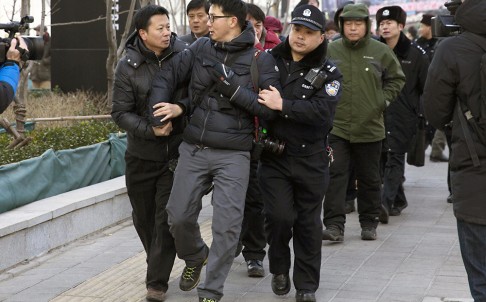
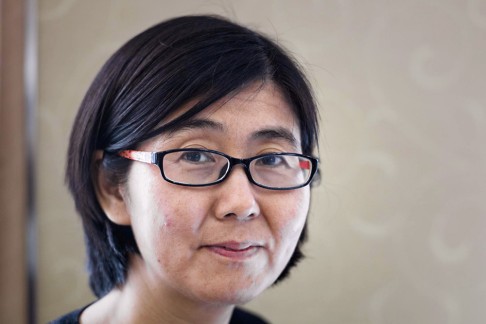
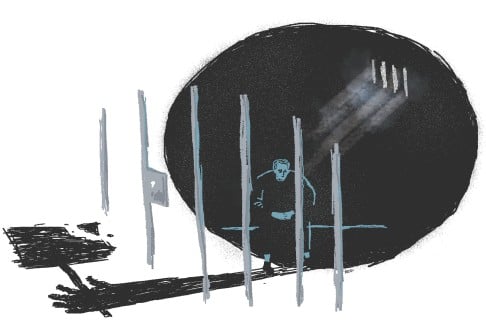
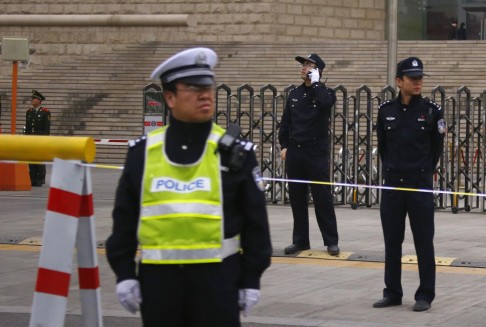
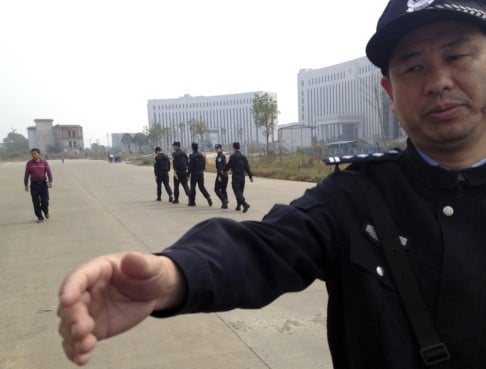
No comments:
Post a Comment
Comments always welcome!